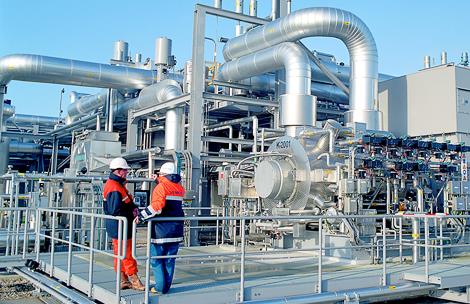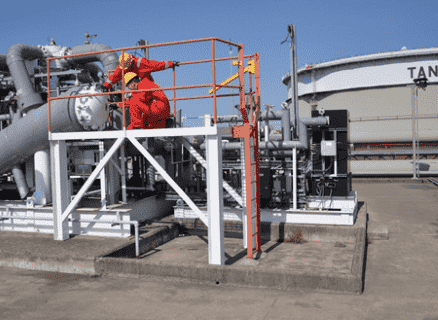COURSE OVERVIEW
PE0114 : Process Troubleshooting and Problem Solving

OVERVIEW
| COURSE TITLE | : | PE0114 : Process Troubleshooting and Problem Solving |
| COURSE DATE | : | Aug 19 - Aug 23 2024 |
| DURATION | : | 5 Days |
| INSTRUCTOR | : | Mr. Mervyn Frampton |
| VENUE | : | Abu Dhabi, UAE |
| COURSE FEE | : | $ 5500 |
| Request For Course | ||
Course Description
Modern industrial processes are large, complex and have a high degree of interaction between both dependent and independent variables. This makes problem solving difficult and leads to the “disappearing problem” syndrome. Problems often disappear without being solved only to reappear again. This course deals with a unique approach of combining cause and effect problem solving thinking with formulation of theoretically correct working hypotheses to provide rapid and effective problem solving techniques for the process industry.
Problem Solving in the process industry is often characterized by either inference based on cause and effect relationships or highly involved theoretical approaches. Neither of these approaches is satisfactory in a modern manufacturing environment. The cause/effect inference approach while being expedient often results in solutions that do not eliminate the problem, but in fact make the problem worse. The more sophisticated highly theoretical approach is rarely expedient enough to satisfy time constraints in a production facility. Thus one of the most frequent industry requests to the academic world is “give us people that can solve problems”.
This course presents an approach that emphasizes the classical problem solving approach (defining the sequence of events) with the addition of the steps of formulating a theoretically correct working hypothesis, providing a means to test the hypothesis, and providing a foolproof means to eliminate the problem. The initial part of the course focuses on defining the problem that must be solved and obtaining the location, time and quantity based specifications of the problem. The initial part of the course is suitable for all engineering disciplines as well as non-engineers.
The second part of the course deals with the utilization of chemical engineering fundamentals to develop a technically correct working hypothesis that is the key to successful problem solving. The primary emphasis is on pragmatic calculation techniques that are theoretically correct. These techniques have been developed by the course Instructor in 30+ years of industrial experience. Using these techniques, theoretically correct working hypotheses can be developed in an expedient fashion.
The course includes both sample problems as well as problem working sessions to allow the participants to develop confidence with the approach.
The attendees are encouraged to bring real problems that they are working to use in discussions on the last day of the course. These problems should be of a non-confidential nature that can be discussed without violation of any confidentiality restrictions.
Problem Solving in the process industry is often characterized by either inference based on cause and effect relationships or highly involved theoretical approaches. Neither of these approaches is satisfactory in a modern manufacturing environment. The cause/effect inference approach while being expedient often results in solutions that do not eliminate the problem, but in fact make the problem worse. The more sophisticated highly theoretical approach is rarely expedient enough to satisfy time constraints in a production facility. Thus one of the most frequent industry requests to the academic world is “give us people that can solve problems”.
This course presents an approach that emphasizes the classical problem solving approach (defining the sequence of events) with the addition of the steps of formulating a theoretically correct working hypothesis, providing a means to test the hypothesis, and providing a foolproof means to eliminate the problem. The initial part of the course focuses on defining the problem that must be solved and obtaining the location, time and quantity based specifications of the problem. The initial part of the course is suitable for all engineering disciplines as well as non-engineers.
The second part of the course deals with the utilization of chemical engineering fundamentals to develop a technically correct working hypothesis that is the key to successful problem solving. The primary emphasis is on pragmatic calculation techniques that are theoretically correct. These techniques have been developed by the course Instructor in 30+ years of industrial experience. Using these techniques, theoretically correct working hypotheses can be developed in an expedient fashion.
The course includes both sample problems as well as problem working sessions to allow the participants to develop confidence with the approach.
The attendees are encouraged to bring real problems that they are working to use in discussions on the last day of the course. These problems should be of a non-confidential nature that can be discussed without violation of any confidentiality restrictions.
TRAINING METHODOLOGY
This interactive training course includes the following training methodologies:
LecturesWorkshops & Work Presentations
Case Studies & Practical Exercises
Videos, Software & Simulators
In an unlikely event, the course instructor may modify the above training methodology for technical reasons.
VIRTUAL TRAINING (IF APPLICABLE)
If this course is delivered online as a Virtual Training, the following limitations will be applicable:
| Certificates | : | Only soft copy certificates will be issued |
| Training Materials | : | Only soft copy materials will be issued |
| Training Methodology | : | 80% theory, 20% practical |
| Training Program | : | 4 hours per day, from 09:30 to 13:30 |
RELATED COURSES

PE0010 : Oil Movement, Storage & Troubleshooting
- Date: Jan 25 - Jan 29 / 3 Days
- Location: Kuwait City, Kuwait
- Course Details Register

PE0785 : Refinery Operational Economics, Planning & Profitability
- Date: Jan 26 - Jan 30 / 3 Days
- Location: Doha, Qatar
- Course Details Register

PE0640 : Troubleshooting Process Operations
- Date: Jan 26 - Jan 30 / 3 Days
- Location: Doha, Qatar
- Course Details Register

PE0050 : Elements of Applied Process Engineering
- Date: Jan 26 - Jan 30 / 3 Days
- Location: Cairo, Egypt
- Course Details Register
